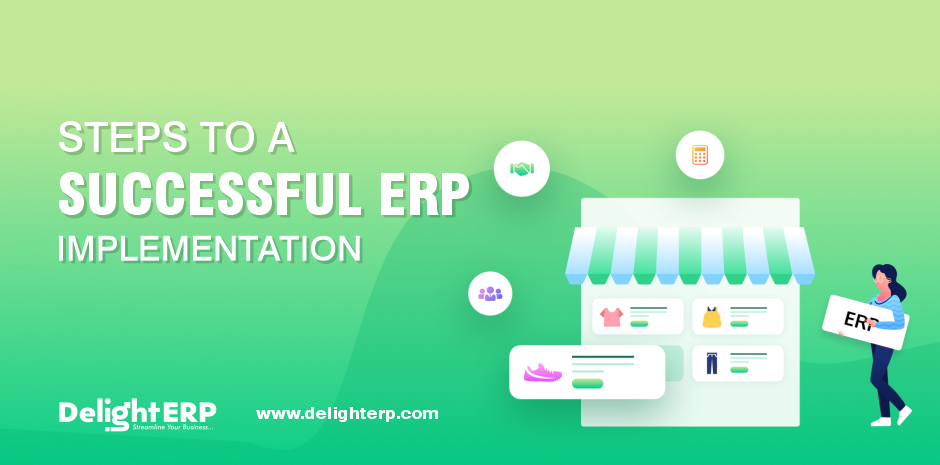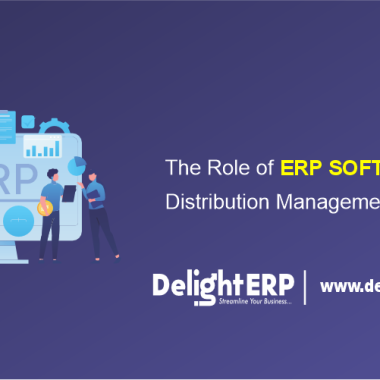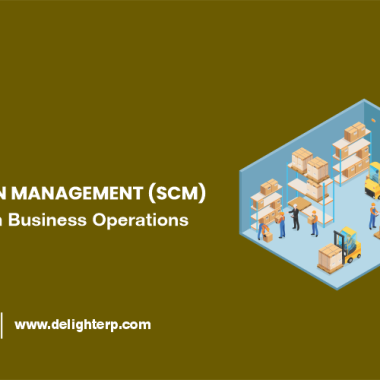Introduction of ERP Implementation
A well-designed enterprise resource planning (ERP) system can be the foundation for building a robust ERP system. This article discusses the steps needed to create an effective ERP solution that will reduce costs, improve efficiency, and better serve your organization. Establishing an ERP system is not difficult. A few good practices and research can make an ERP implementation successful. This article describes three steps in the ERP implementation process that will help you maximize your potential benefits from the investment.
The ERP market has turned into a lucrative one for many companies. You can take your business to the next level with the help of an ERP implementation and implementation company. Today, one of the most critical IT processes is ERP implementation. A successful ERP implementation implies continuous changes on the human factor and system level.
However, the process may go through many changes and improvements, which emphasize steps of a successful ERP implementation to reach the same or similar results. All ERP systems have a few requirements in order to function properly. The basic role of each system is that of a data warehouse, and there are a few steps it must complete in order to become a fully functioning system. Step by step, we’ll look at the process involved in a successful ERP implementation in order to provide you with a high-performance ERP solution for your business.
What is ERP System?
The ERP (Enterprise Resource Planning) system was designed to make organizations more efficient. ERP System is a system of information processing that is vital for the organization. ERP System is a set of tools and services, partially or fully automated, which permit the scalable, flexible and secure handling of information from many diverse sources.
ERP System is an easy ERP system with full-featured conceptual support, it provides the solution for companies to define complicated business processes on a single platform, build business solutions with just a few clicks. It puts the tasks and resources of the entire organization under central control.
Enterprise Resource Planning helps reduce human error in process and resource allocation, making it possible for large organizations to more effectively manage their day-to-day activities. There are many benefits to the use of ERP systems for industries. In this article, we will take a look at some of the most common benefits associated with the ERP system and why they are important. ERP System (Enterprise Resource Planning) is a business management software solution that helps manage IT operations.
It helps to ensure resource utilization, professional workflows, and security throughout the enterprise. ERP can also be used by businesses in other industries to help improve their efficiency and productivity. ERP stands for Industry and Revenues Predictive Model. ERP software provide a way of communicating information between different company’s departments so that they can easily meet with each other and plan out their business operations.
Also Read: How ERP Software Helps To Improve Retail Business
Why Manufacturers Implement ERP Systems?
Manufacturers use ETM (Enterprise Resource Planning) systems to make their supply chains more efficient. For instance, they can manage multiple production runs and can streamline production due to a lack of resources in the past. The main purpose of ERP is to improve the overall efficiency of a company’s operations, but it can also help sell a product or keep employees happy.
Ultimately, increasing efficiency means more profit. Here’s more detail about why manufacturers implement ERP systems. Manufacturers implement ERP (enterprise resource planning) systems for many reasons. Some are for business continuity, while others enable easier inventory control and product tracking. Yet another benefit is improved efficiency. All these reasons are given by edge technologies, which took the place of mainframe systems until relatively recently.
Manufacturers currently implement ERP systems mainly because they are cost-effective. An electronic software system can be implemented as a system upgrade, or just added to existing systems. Modern business tools such as search engines and databases became widely available twenty-five years ago, and computer software just isn’t new by any means. This software has been around for a long time, and it is not even necessary to create an elaborate software system to keep track of your physical assets; You can implement simple business management software in place of costly digital asset libraries.
Manufacturers typically implement ERP systems to increase efficiency and reduce costs. This helps the company shift gears from manual operations to more complex software-driven systems. If you want to stay ahead of the game, you’ll need to consider all aspects of the manufacturing sector. Aside from ERP, there are other automation and business process improvement (BPI) steps that your business could benefit from implementing. Furniture and consumer goods manufacturers are often at the forefront when it comes to introducing technology into their businesses.
ERP software help distribute work without human intervention and allow for efficiency in data processing. Many manufacturing owners and managers are drawing up plans for implementing ERP systems in their facilities due to the benefits that they bring. They want to keep up with their competition and reduce labor costs while increasing efficiency in the manufacturing process. Aside from improving employee workflows and productivity, ERP (enterprise resource planning) systems can also be used to prepare for natural disasters and other major economic disruptions. Businesses that are able to implement these systems ahead of time are then better prepared should these events occur.
ERP (enterprise resource planning) systems can be implemented at many levels within the supply chain. Industries like manufacturers are always looking for ways to improve efficiency and reduce costs. In manufacturing, this can mostly be accomplished by implementing more efficient and effective machinery. Many ERP software are created due to the need for increased productivity and efficiency within a business. Almost all manufacturing companies have some type of IT solution implemented within their facilities for data collection, management, and processing.
Manufacturers implement ERP systems to save money and improve efficiency. No business can be made without saving money. It is important to have a system in place so that you can monitor and make changes as necessary. It is not easy getting cost-effective information from different departments while trying to determine where your money should be going. It is understandable that this process is tedious, however, if a company has a good system in place, it will save on unnecessary trips in the future.
It enabled them to improve and scale their operations. Read how they do it: The issues faced by manufacturers in dealing with a changing environment lay at the core of the current problem – inefficiency. This is especially absurd when it comes to implementing an ERP system because there are dozens of practical opportunities for improvement in power management, quality control, inventory management, etc.
Manufacturers ERP systems implement to ensure that a factory can receive inventory and correct faulty equipment in real-time. Manufacturers can manage multiple environments with connected, multi-site manufacturing lines and sophisticated filament extrusion machines. Modern ERP programs can improve manufacturing efficiency and productivity. One of the benefits of implementing an ERP system is cost-effective management – manufacturers can manage high levels of traffic and decrease costs while increasing quality. Also, there are software systems that allow manufacturers to more easily manage inventory, test products, and monitor distribution’s effects on sales.
Very often, place critical data that can influence energy usage or product demand into an ERP system. While several technological advances have been implemented in the field of Industrial Reliability and Security, many are centered around utilizing the benefits offered by ERP systems. These systems are expanding the boundaries of business operations by offering new ways to exchange data and data between different departments and third-party systems.
Also Read: How Can ERP Software Boost Your Business Productivity?
Conclusion of ERP Implementation
ERP systems are used worldwide by organizations to supply any kind of information to other computers, servers, or workstations. They can process vast amounts of data, allowing any given piece of information to be accessed and stored even during power outages or other disruptions of the usual network. This saves the organization the trouble of rebooting and repairing data when it breaks down.
You’ll receive more credibility, trustworthiness, and customer satisfaction when you’re using ERP (enterprise resource planning) systems. Nowadays, ERP software can be used not only in the physical sense but also in the digital world. Different industries have different needs but at the same time, they apply the same basic principles to achieve a single goal: high flexibility in response to changing demand.
This flexibility allows a company to respond quickly to changing market conditions; for example, a better understanding of consumer behavior could help in identifying areas that are not profitable anymore and closing them down.
Running your own information technology (IT) business is quite expensive, and it doesn’t come cheap. ERP systems are used by companies to quickly store, analyze and manage files. By replacing these backup systems with ERP systems, an organization can save thousands of dollars and months of work. They are often implemented by small businesses and start-ups as part of their overall IT strategy.
Centralized, secure, and flexible ERP systems are more efficient and flexible than any other technology known to man. This is especially true in an enterprise environment where IT budget troubles can paralyze even the most hardened organizations. Point of Sale systems has proved their worth since they help businesses pinpoint orders placed by customers with just a glance and receipt. Tower gives you an edge with its simplicity and accuracy which can save you time and money on your operational costs.





